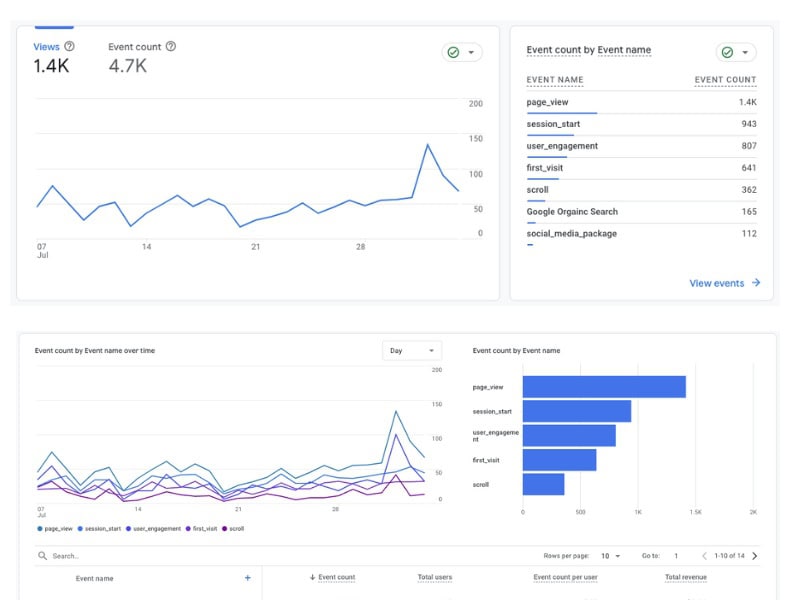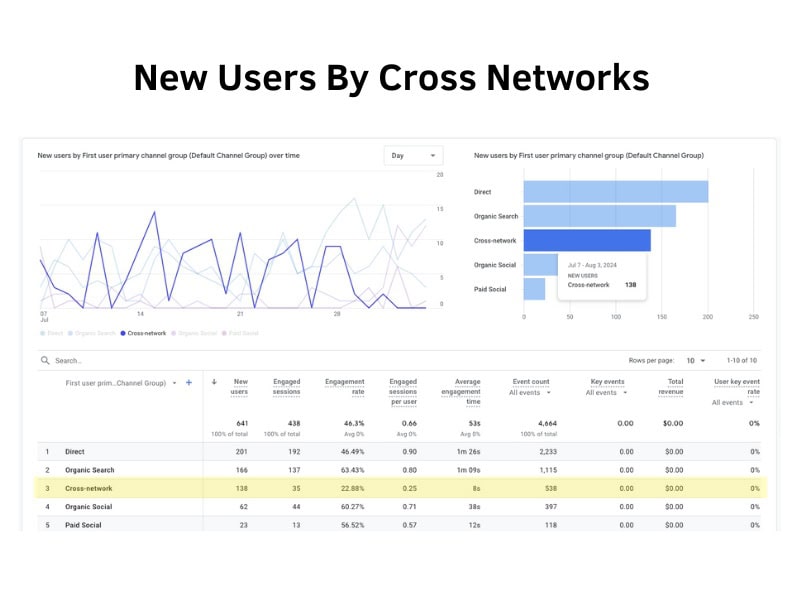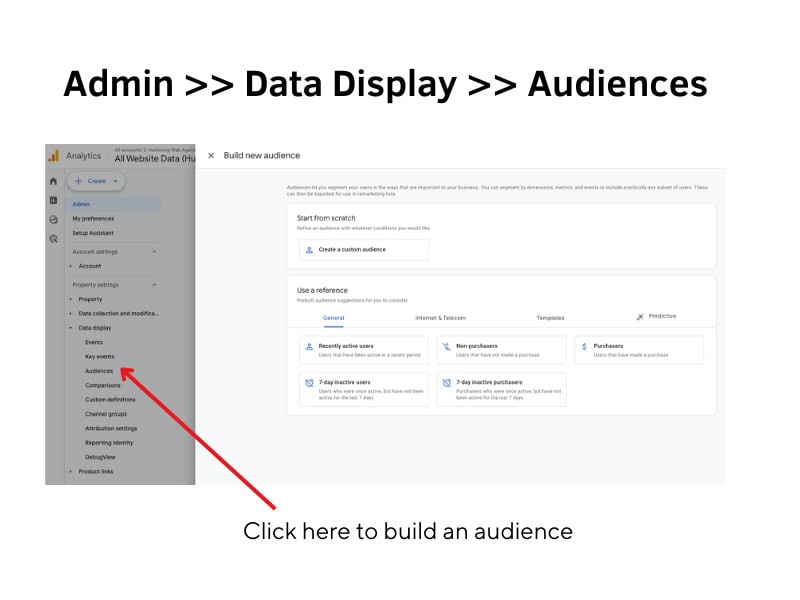Google Analytics 4 (GA4) can significantly enhance your SEO strategy by providing detailed insights into user behavior, tracking key performance indicators, and enabling data-driven decision-making. Here are several ways GA4 optimizes SEO strategy effectively.
Enhanced User Journey Tracking

GA4’s event-based tracking allows you to monitor the complete user journey, capturing interactions beyond simple page views. This helps you understand how users engage with various elements on your site, such as:
- Clicks on buttons and links
- Video plays and completions
- Form submissions
- Scroll depth
- Page views
- First Visit
By analyzing these interactions, you can identify areas to enhance user experience, which can positively impact SEO.
Improved Cross-Platform Tracking

GA4 is designed to track users across multiple devices and platforms, providing a holistic view of user interactions. This capability helps you.
- Identify how users transition between devices (e.g., from mobile to desktop)
- Understand multi-channel journeys
- Optimize content for the device and platform preferences of your audience
Audience Segmentation
GA4 offers advanced audience segmentation features that allow you to create and analyze specific user groups. You can segment the audience by dimensions, metrics, and events to include practically any subset of users. This can optimize your SEO strategy by:
- Tailoring content to the preferences and behaviors of different audience segments.
- Identifying high-value segments that convert well and cater to their needs with targeted content.
- Detecting and addressing segments with high bounce rates or low engagement.

To create an audience from a segment:
- Sign in to your Analytics account.
- From the settings go to Admin select Data display menu and click Audiences.
- You can build from scratch or you can use pre-build audience segmentation.
These saved audiences can also be exported for use in remarketing lists.
Integration With Google Search Console
Integration with Google Search Console (GSC) bridges the gap between search data and on-site behavior. This combined data can be used to:
- Monitor keywords driving organic traffic
- Assess the performance of landing pages based on organic search results
- Identify new keyword opportunities for content optimization
Conversion Tracking and Attribution
GA4’s enhanced conversion tracking capabilities allow you to measure various user actions that align with your business objectives, such as:
- Purchase completions
- Form submissions
- Newsletter sign-ups
You can optimize your content and SEO strategies to enhance lead generation and improve conversion rates by analyzing conversion paths and attributing conversions to specific channels.
Custom Dashboards and Reports
GA4 allows you to create custom dashboards and reports tailored to your SEO objectives. This feature is beneficial for:
- Visualizing key SEO metrics and trends in real-time
- Detecting and responding to sudden drops or spikes in traffic
- Facilitating quick decision-making based on up-to-date data.
Analyzing Referral Traffic
Understanding where your referral traffic comes from and how it performs on your website can help you:
- Optimize link-building strategies
- Strengthen relationships with high-performing referral sources
- Identify potential new sources of referral traffic
Insights and Recommendations
GA4’s machine learning capabilities provide automated insights and recommendations. These can be used to:
- Identify emerging trends and opportunities
- Receive alerts about significant changes in user behavior or site performance
- Implement data-driven changes to improve SEO outcomes
Realtime Data Analysis
GA4’s real-time reporting allows you to monitor user activity as it happens. This is particularly useful for:
- Launching new content or campaigns and tracking immediate impact.
- Identifying and resolving issues quickly.
- Adjusting strategies on the fly based on real-time user behavior.
Conclusion
By leveraging the rich features and advanced capabilities of GA4, you can gain a nuanced understanding of user behavior, optimize content and site performance, and make informed decisions that enhance your overall SEO strategy. Integrating detailed data analytics with strategic SEO efforts positions your website for improved organic visibility and greater success in search engine rankings.


